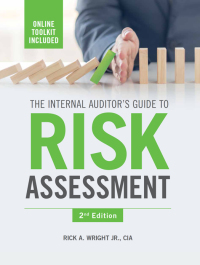Question
PRACTICE QUESTIONS Question One The following trial balance relates to Faith at 30 September 2008: GHS000 GHS000 Leasehold property at valuation 1 October 2007 (note
| PRACTICE QUESTIONS |
|
|
| Question One |
|
|
| The following trial balance relates to Faith at 30 September 2008: |
|
|
|
| GHS000 | GHS000 |
| Leasehold property at valuation 1 October 2007 (note (i)) | 50,000 |
|
| Plant and equipment at cost (note (i)) | 76,600 |
|
| Plant and equipment accumulated depreciation at 1 October 2007 |
| 24,600 |
| Capitalised development expenditure at 1 October 2007 (note (ii)) 20,000 |
| |
| Development expenditure accumulated amortisation at 1/10/07 |
| 6,000 |
| Closing inventory at 30 September 2008 | 20,000 |
|
| Trade receivables | 43,100 |
|
| Bank |
| 1,300 |
| Trade payables and provisions (note (iii)) |
| 23,800 |
| Revenue (note (i)) |
| 300,000 |
| Cost of sales | 204,000 |
|
| Distribution costs | 14,500 |
|
| Administrative expenses (note (iii)) | 22,200 |
|
| Preference dividend paid | 800 |
|
| Interest on bank borrowings | 200 |
|
| Equity dividend paid | 6,000 |
|
| Research and development costs (note (ii)) | 8,600 |
|
| Equity shares of 25 cents each |
| 50,000 |
| 8% redeemable preference shares of GHS1 each (note (iv)) |
| 20,000 |
| Retained earnings at 1 October 2007 |
| 24,500 |
| Deferred tax (note (v)) |
| 5,800 |
| Leasehold property revaluation reserve |
| 10,000 |
|
| ||
|
| 466,000 | 466,000 |
|
| ||
| The following notes are relevant: |
|
|
- Non-current assets tangible:
The leasehold property had a remaining life of 20 years at 1 October 2007. The companys policy is to revalue its property at each year end and at 30 September 2008 it was valued at GHS43 million. Ignore deferred tax on the revaluation.
On 1 October 2007 an item of plant was disposed of for GHS25 million cash. The proceeds have been treated as sales revenue by Faith. The plant is still included in the above trial balance figures at its cost of GHS8 million and accumulated depreciation of GHS4 million (to the date of disposal).
All plant is depreciated at 20% per annum using the reducing balance method.
Depreciation and amortisation of all non-current assets is charged to cost of sales.
- Non-current assets intangible:
In addition to the capitalised development expenditure (of GHS20 million), further research and development costs were incurred on a new project which commenced on 1 October 2007. The research stage of the new project lasted until 31 December 2007 and incurred GHS14 million of costs. From that date the project incurred development costs of GHS800,000 per month. On 1 April 2008 the directors became confident that the project would be successful and yield a profit well in excess of its costs. The project is still in development at 30 September 2008.
Capitalised development expenditure is amortised at 20% per annum using the straight-line method. All expensed research and development is charged to cost of sales.
- Faith is being sued by a customer for GHS2 million for breach of contract over a cancelled order. Faith has obtained legal opinion that there is a 20% chance that Faith will lose the case. Accordingly Faith has provided GHS400,000 (GHS2 million x 20%) included in administrative expenses in respect of the claim. The unrecoverable legal costs of defending the action are estimated at GHS100,000. These have not been provided for as the legal action will not go to court until next year.
-
The preference shares were issued on 1 April 2008 at par. They are redeemable at a large premium which gives them an effective finance cost of 12% per annum.
-
The directors have estimated the provision for income tax for the year ended 30 September 2008 at GHS11.4 million. The required deferred tax provision at 30 September 2008 is GHS6 million.
-
Required:
Prepare the statement of comprehensive income for the year ended 30 September 2008.
-
Prepare the statement of changes in equity for the year ended 30 September 2008.
-
Prepare the statement of financial position as at 30 September 2008.
-
Note: notes to the financial statements are not required
Step by Step Solution
There are 3 Steps involved in it
Step: 1

Get Instant Access to Expert-Tailored Solutions
See step-by-step solutions with expert insights and AI powered tools for academic success
Step: 2

Step: 3

Ace Your Homework with AI
Get the answers you need in no time with our AI-driven, step-by-step assistance
Get Started


